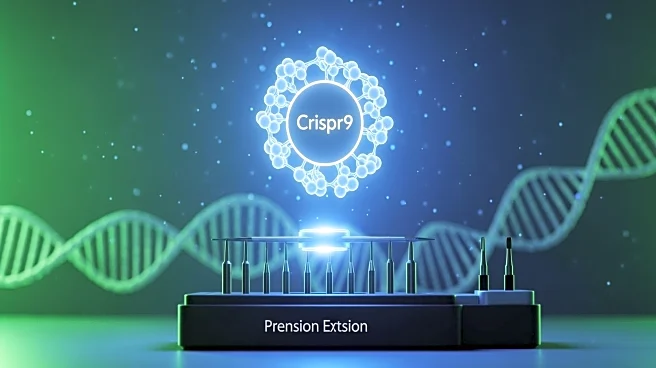What's Happening?
A study published in Nucleic Acids Research highlights advances in CRISPR-associated transposons (CASTs), which are RNA-guided DNA integration systems. Researchers at St. Jude Children’s Research Hospital have developed a high-throughput screen to evaluate
CAST variants, improving their activity and specificity for potential therapeutic applications.
Why It's Important?
The ability to precisely insert genes using CASTs could revolutionize genome editing and therapeutic technologies, offering new possibilities for treating genetic diseases. Enhanced precision and activity in gene insertion can lead to more effective and targeted therapies, potentially improving patient outcomes and advancing personalized medicine.
What's Next?
Researchers aim to translate these findings into mammalian systems, focusing on developing CASTs that are active and precise in human cells. Advances in computational protein design may streamline CAST's machinery, paving the way for clinically viable gene insertion technologies.
Beyond the Headlines
The development of CASTs raises ethical considerations regarding genetic modification and the potential for unintended consequences. It also prompts discussions on regulatory frameworks to ensure safe and responsible use of gene editing technologies.















